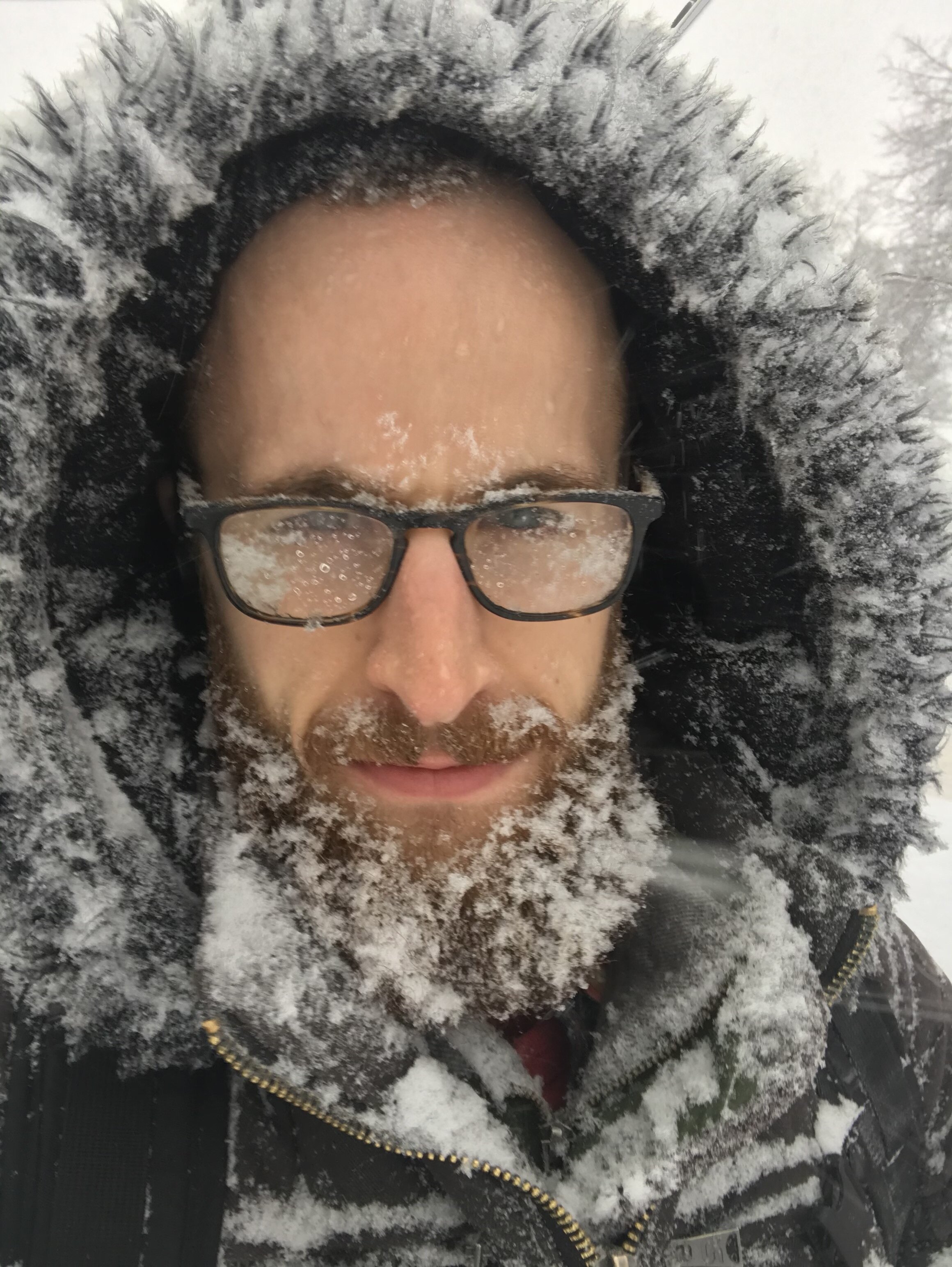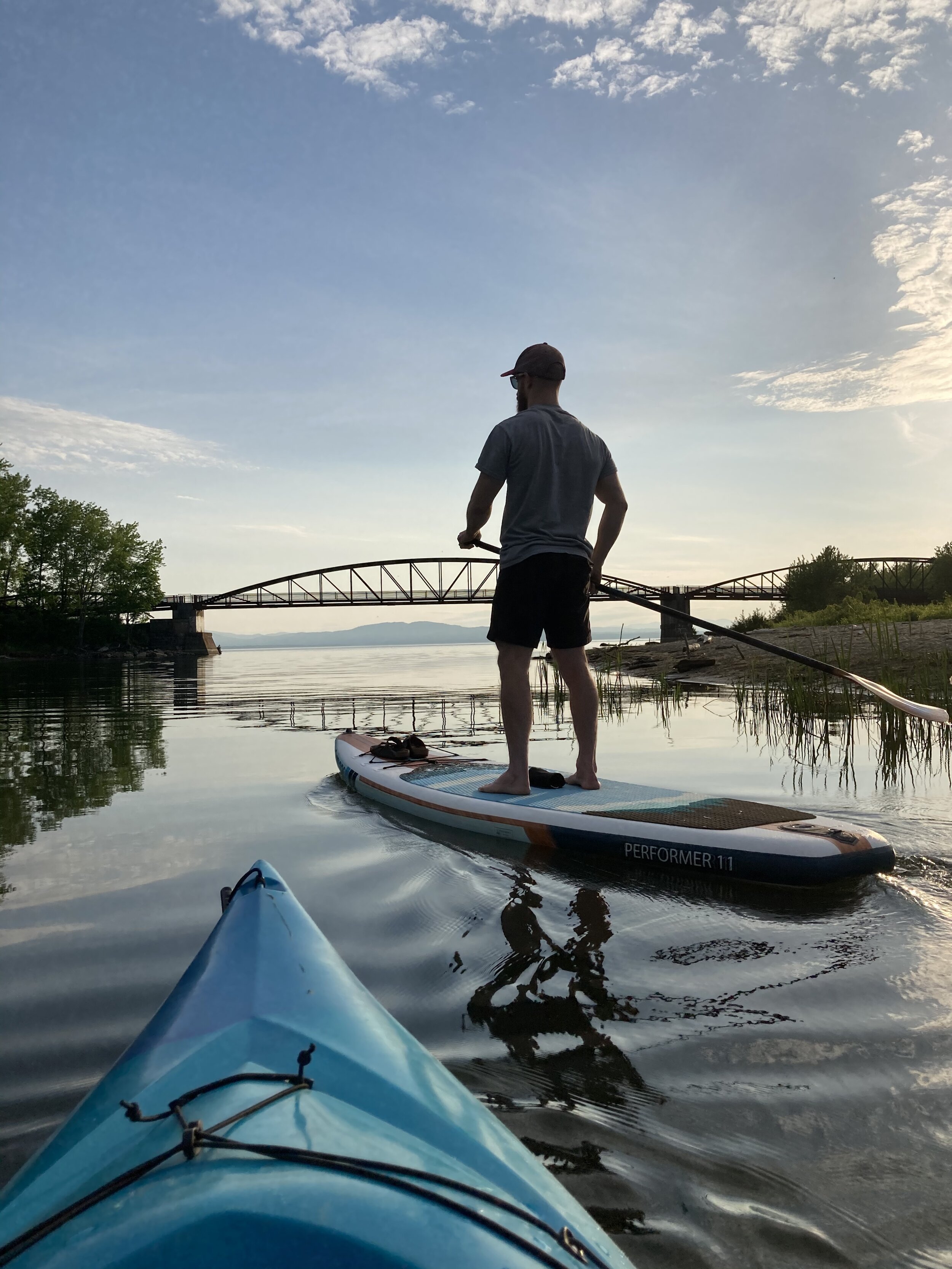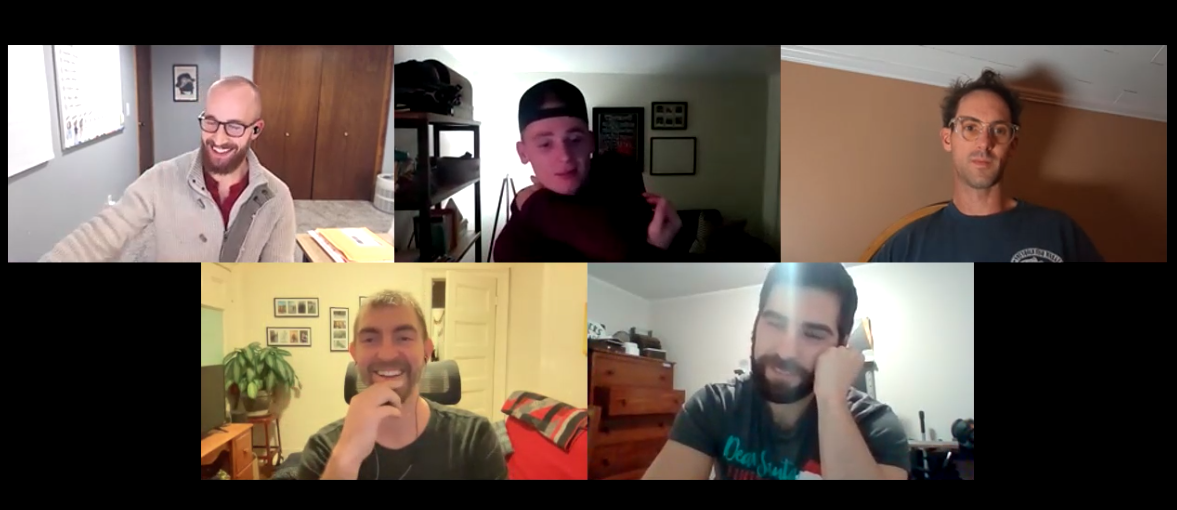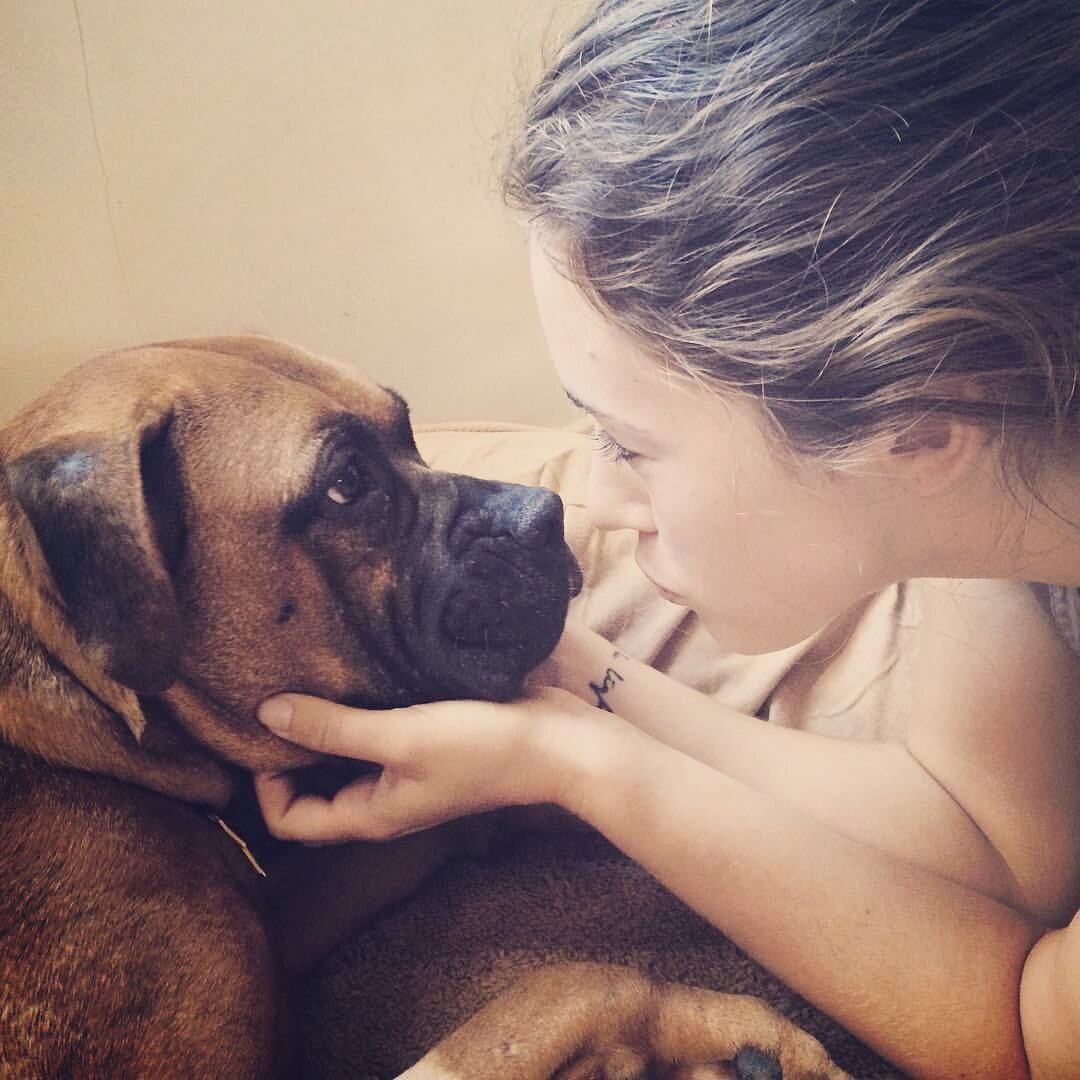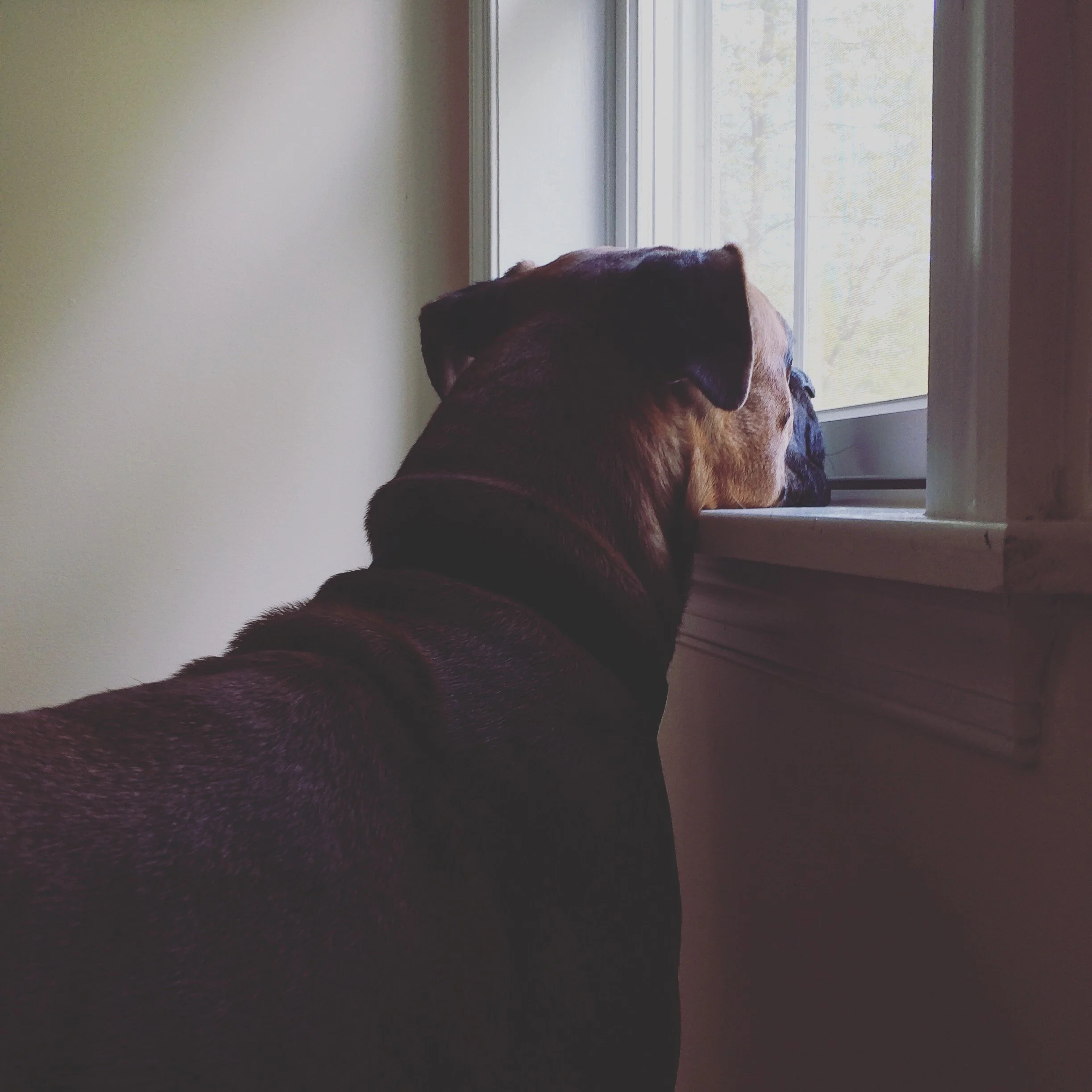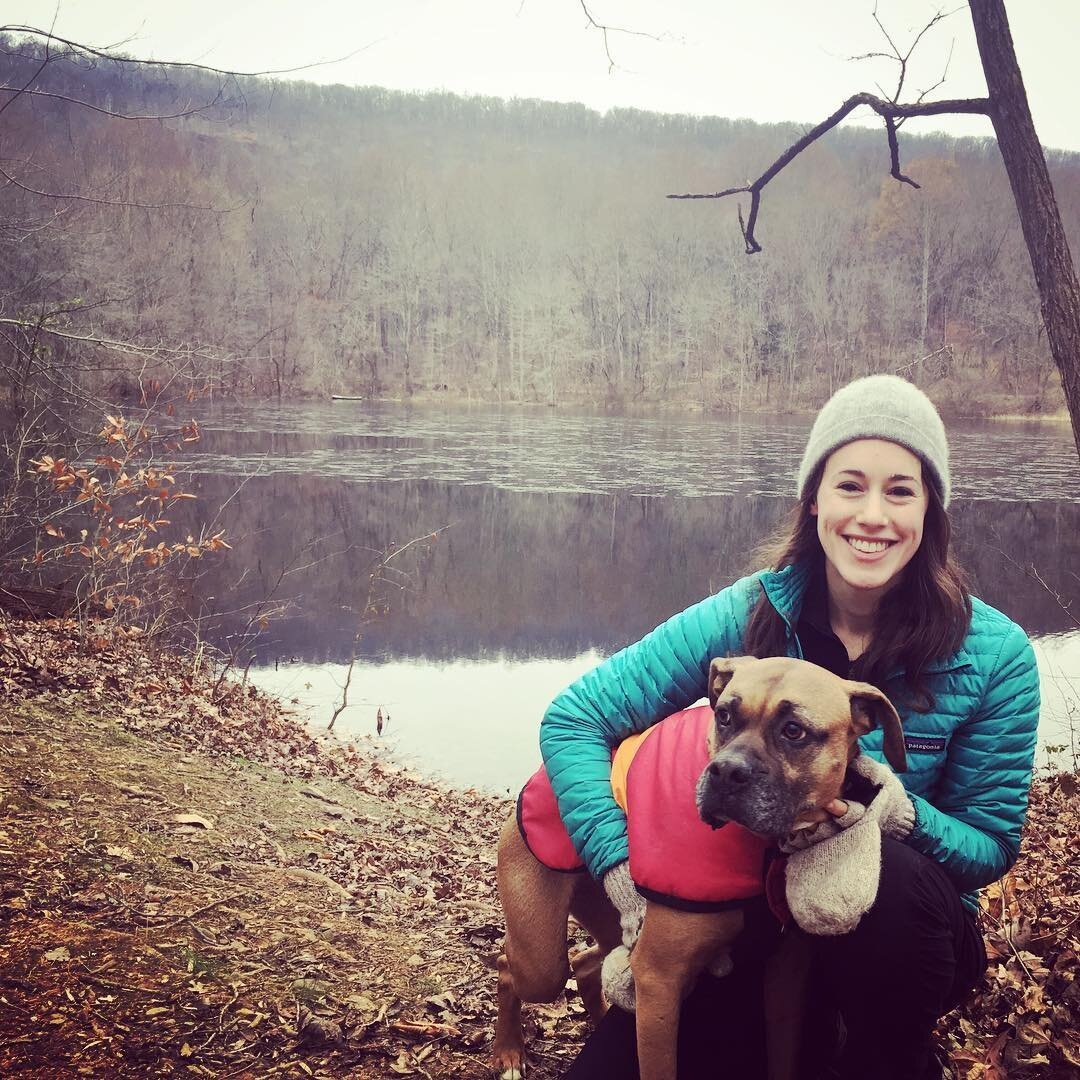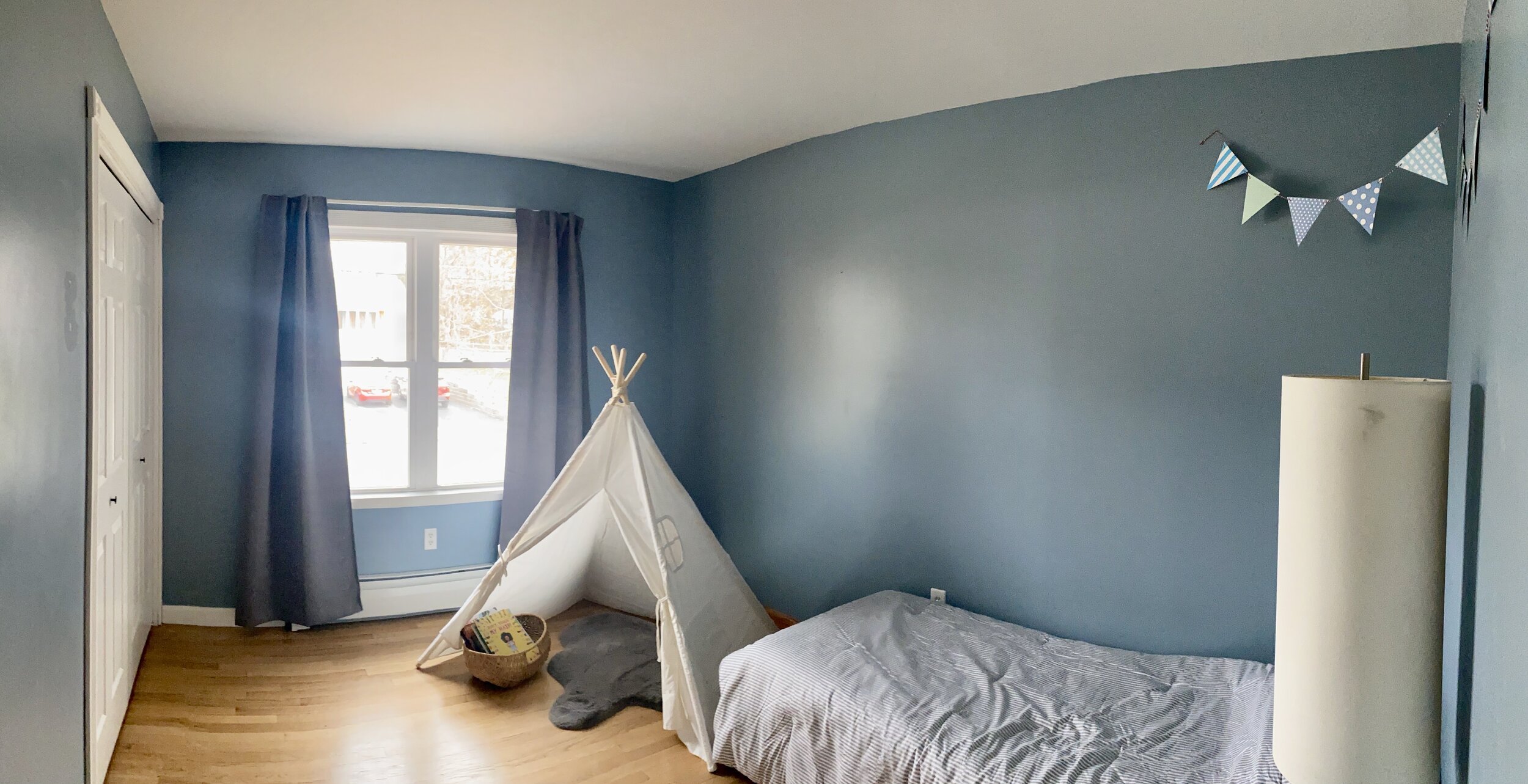Annual Review For 2020: The Year Of Identity (And Some Other Stuff Too)
I know 2020 was pretty uneventful and so there hasn’t been a lot to worry about.
You’ve been wondering, “How is Greg Faxon's year going? Is he doing okay?”
So purely as a favor to you, because I know there’s no other big social issues to grapple with, I thought I’d write about my year in exhaustive detail.
Remember - this is for you, not me. It’s definitely the best possible use of your time.
Quechee Gorge in Vermont. It’s beautiful here. Almost makes you forget that democracy is crumbling.
Here’s how I structure my Annual Reviews:
For each question I take some time to look through my calendar, brainstorm, and then narrow it down to a few highlights in each category.
Let’s dive in.
What Went Well Last Year?
The winters aren’t that bad here. Really.
Bought our first home.
Last year, my wife Emma and I moved to Vermont. We rented a place in downtown Burlington for the first year to make sure we liked the area (and also to make sure we could handle the long winters). In last year’s review, I said I wanted to be prepared to buy a home in case we found something that met our criteria.
The process was a little bit wacky because of COVID. I also had some first-time home buying fears. In fact, I almost pulled out of the contract for the home we ended up buying. I was scared to move to the suburbs and become boring.
Thanks to Emma’s persistence, plus wise council from friends and family, I realized I’m already boring. Okay maybe that’s not what happened. Bottom line is that what we closed on the house and it ended up being perfect for us.
This is the third place I’ve lived where I’ve put in a home gym, and its my favorite setup so far. I’ve been grateful for a place to train during this pandemic. I even hired a powerlifting coach to help me bring things to the next level.
Learnings: Buying a home is terrifying, the suburbs are actually great, listen to wife.
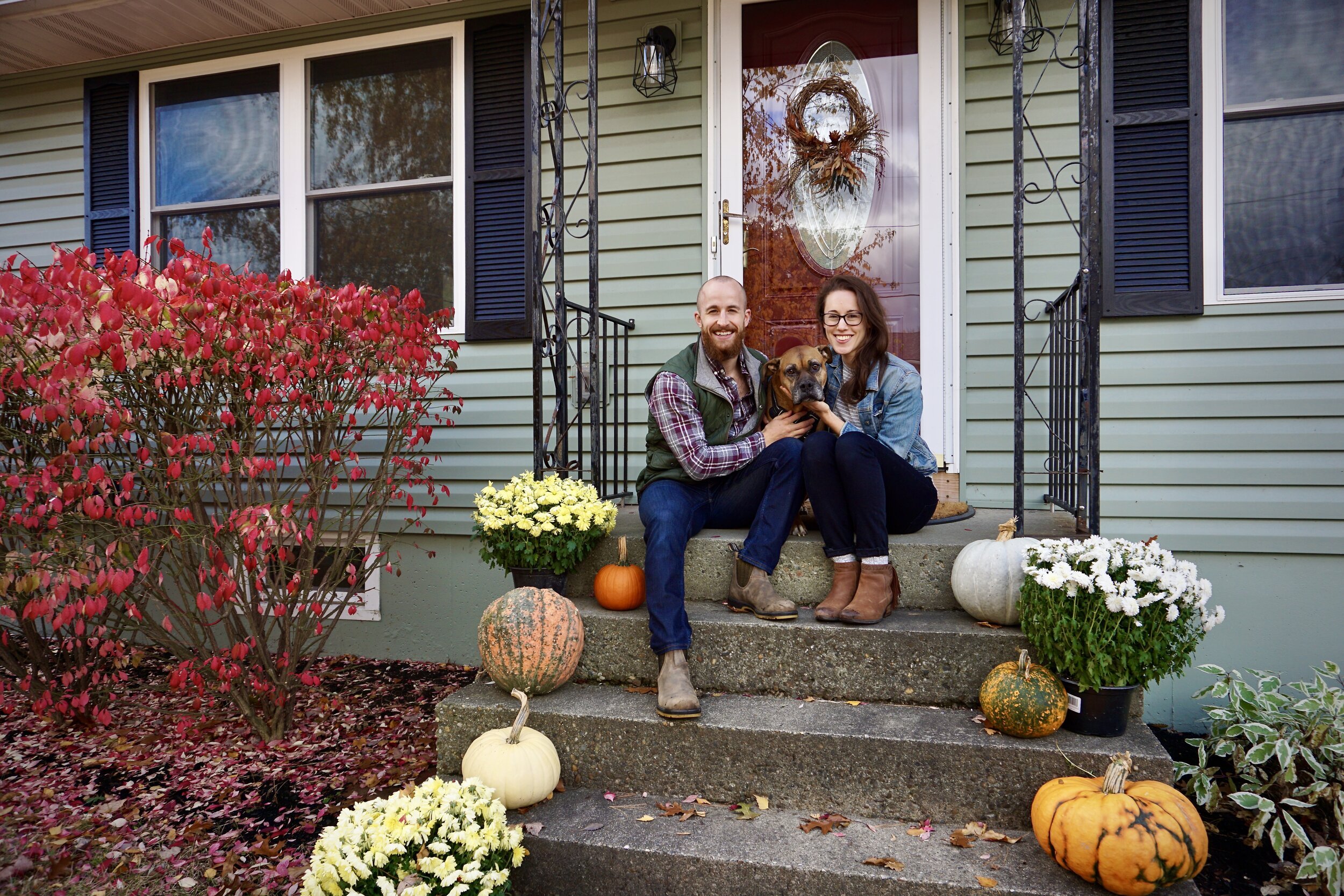
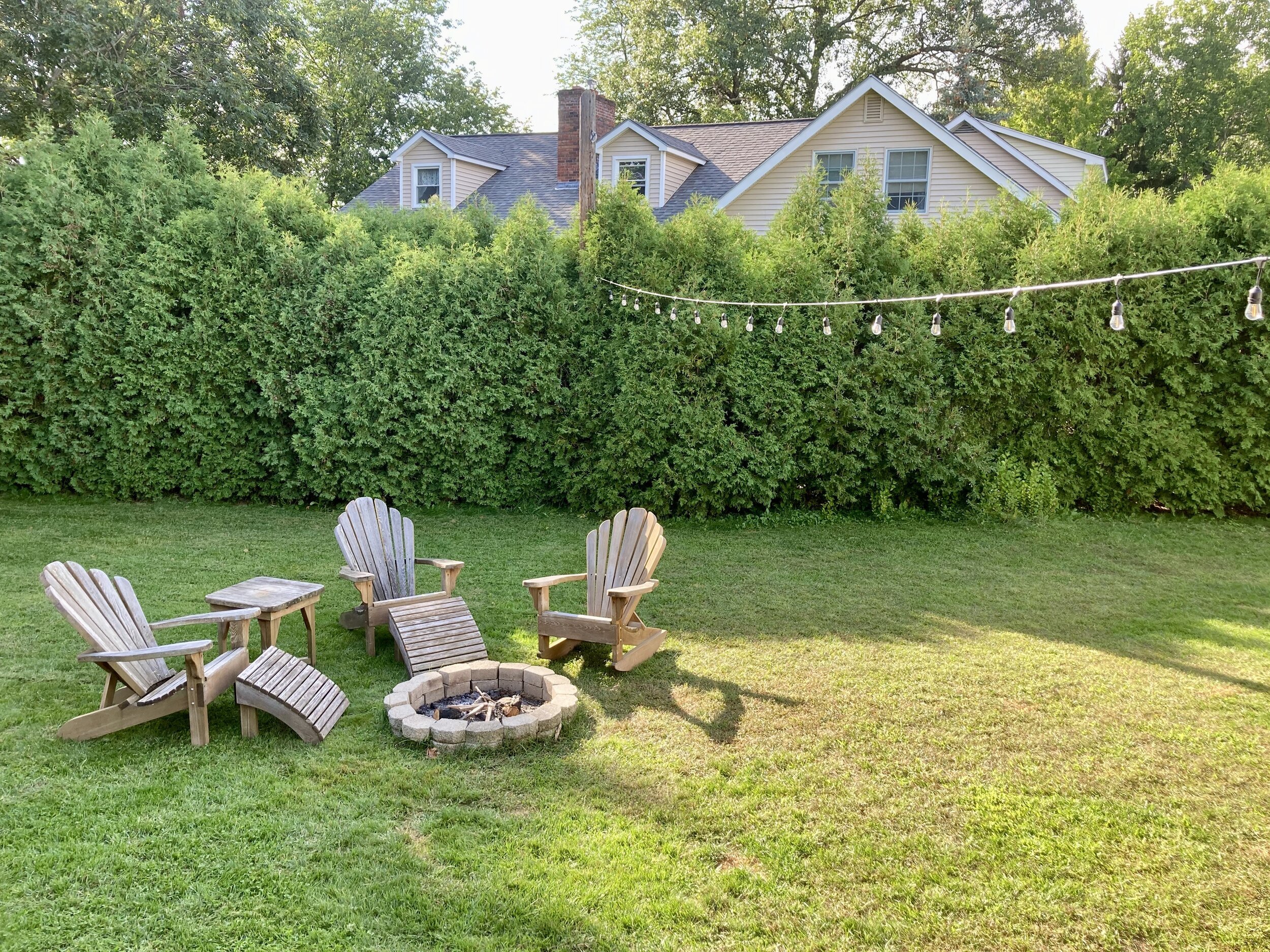
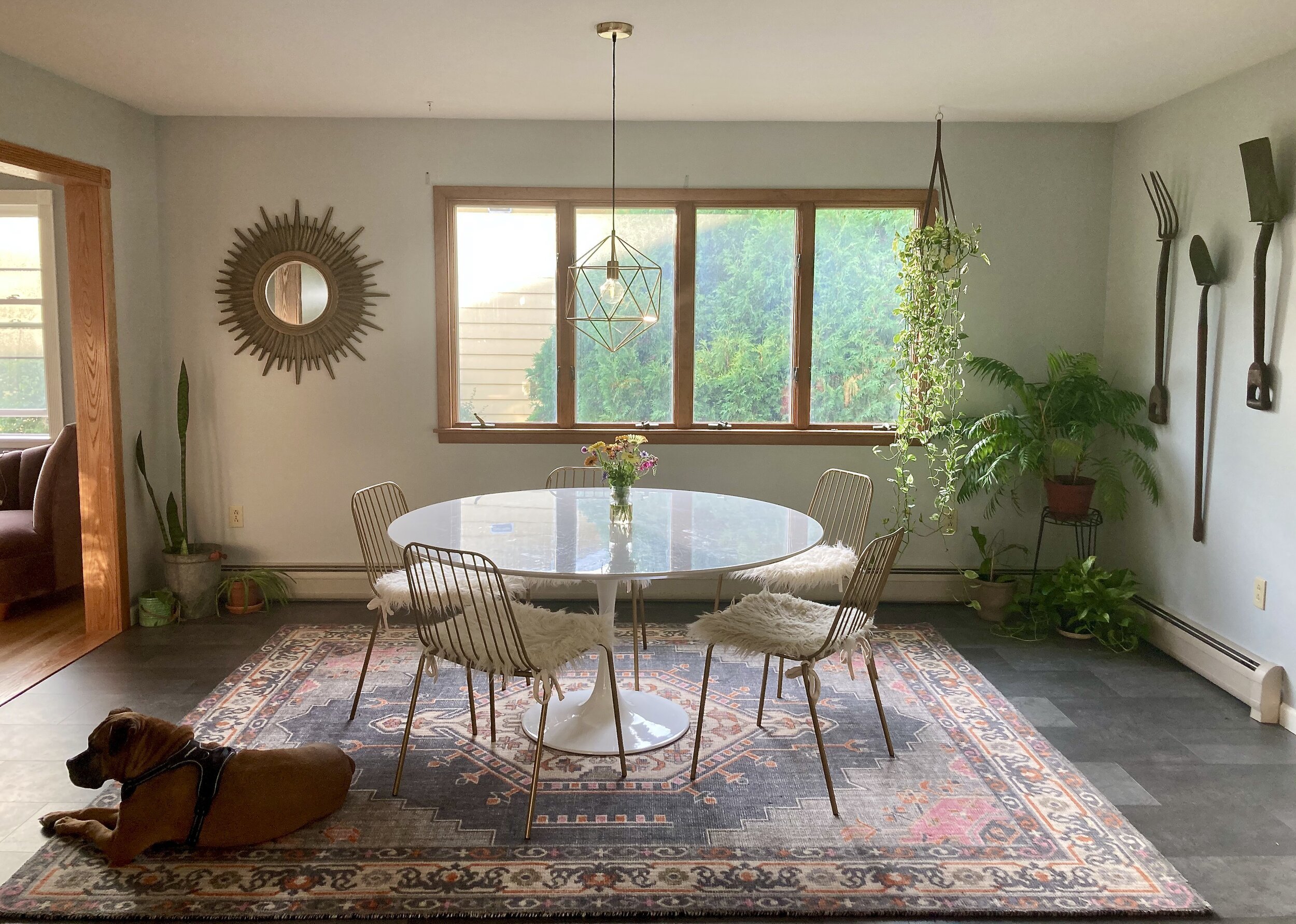
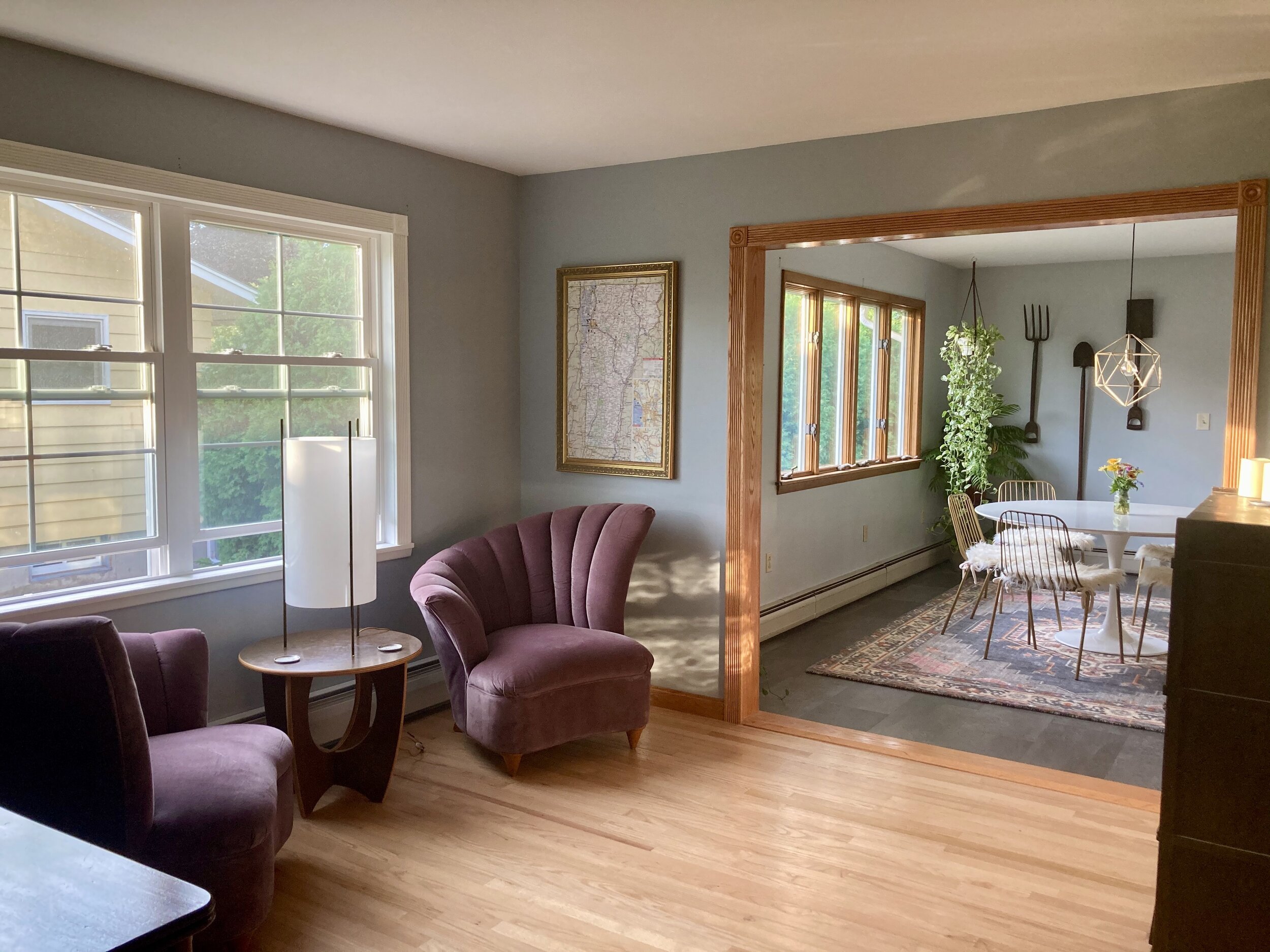
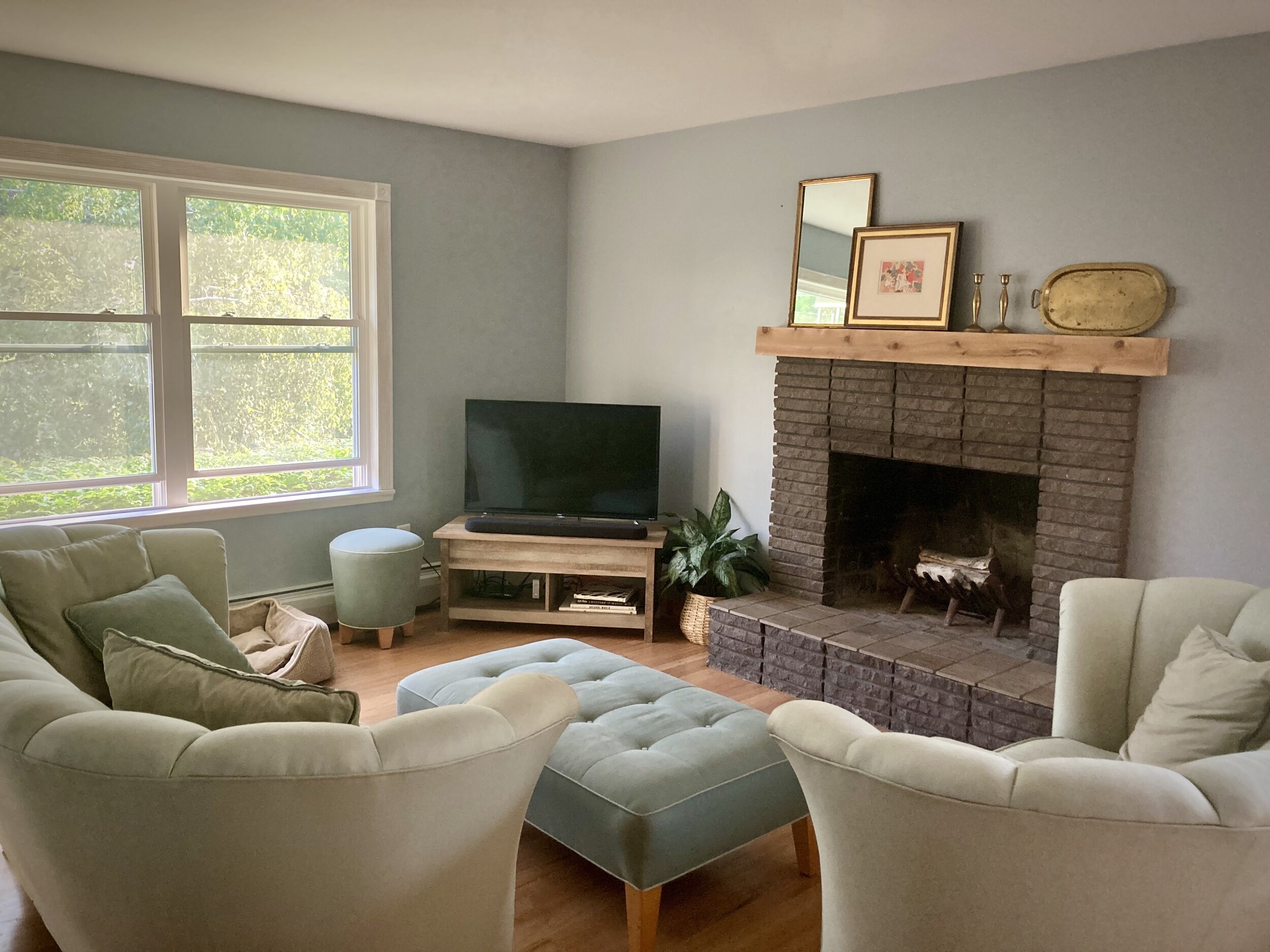
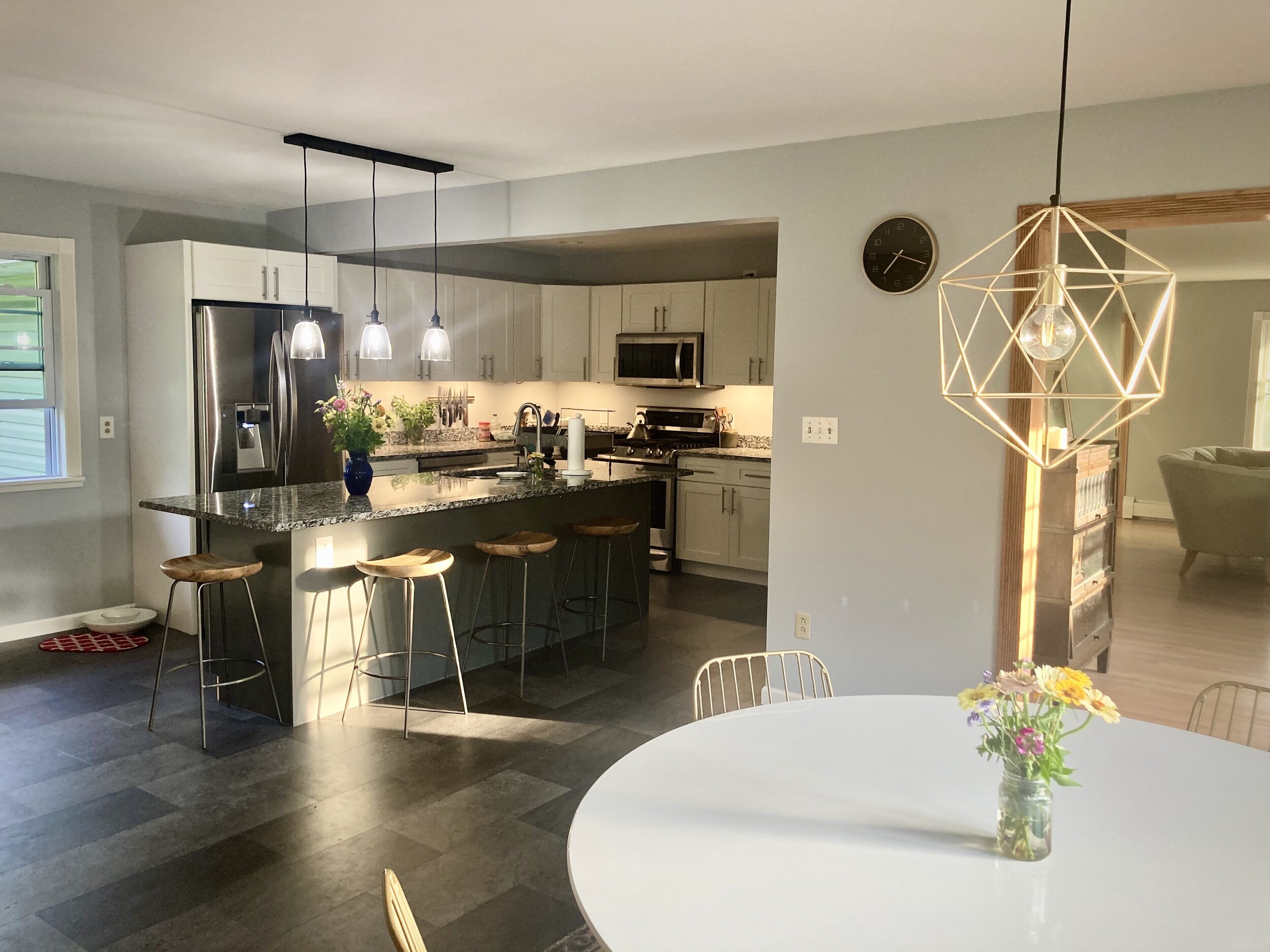
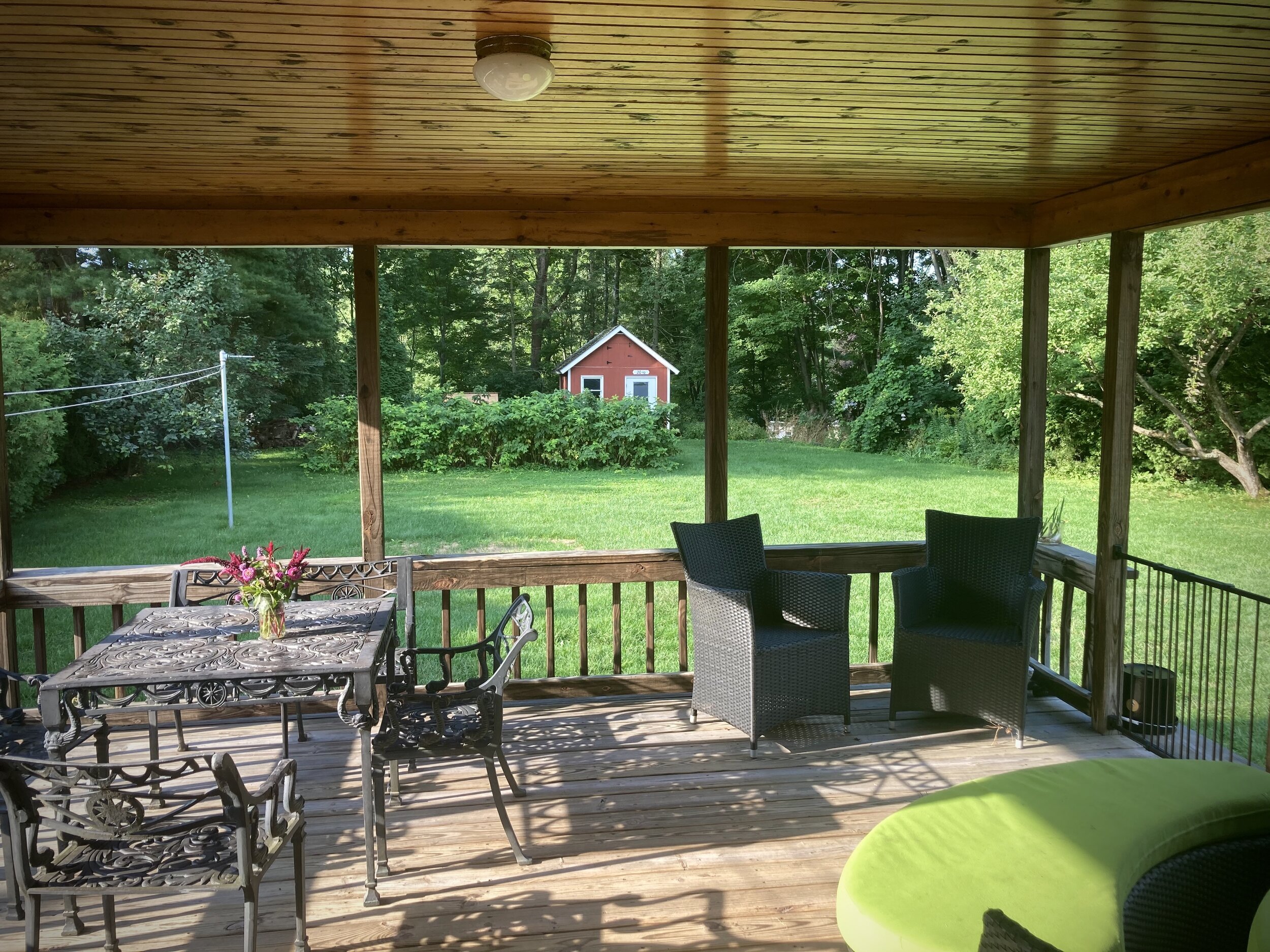
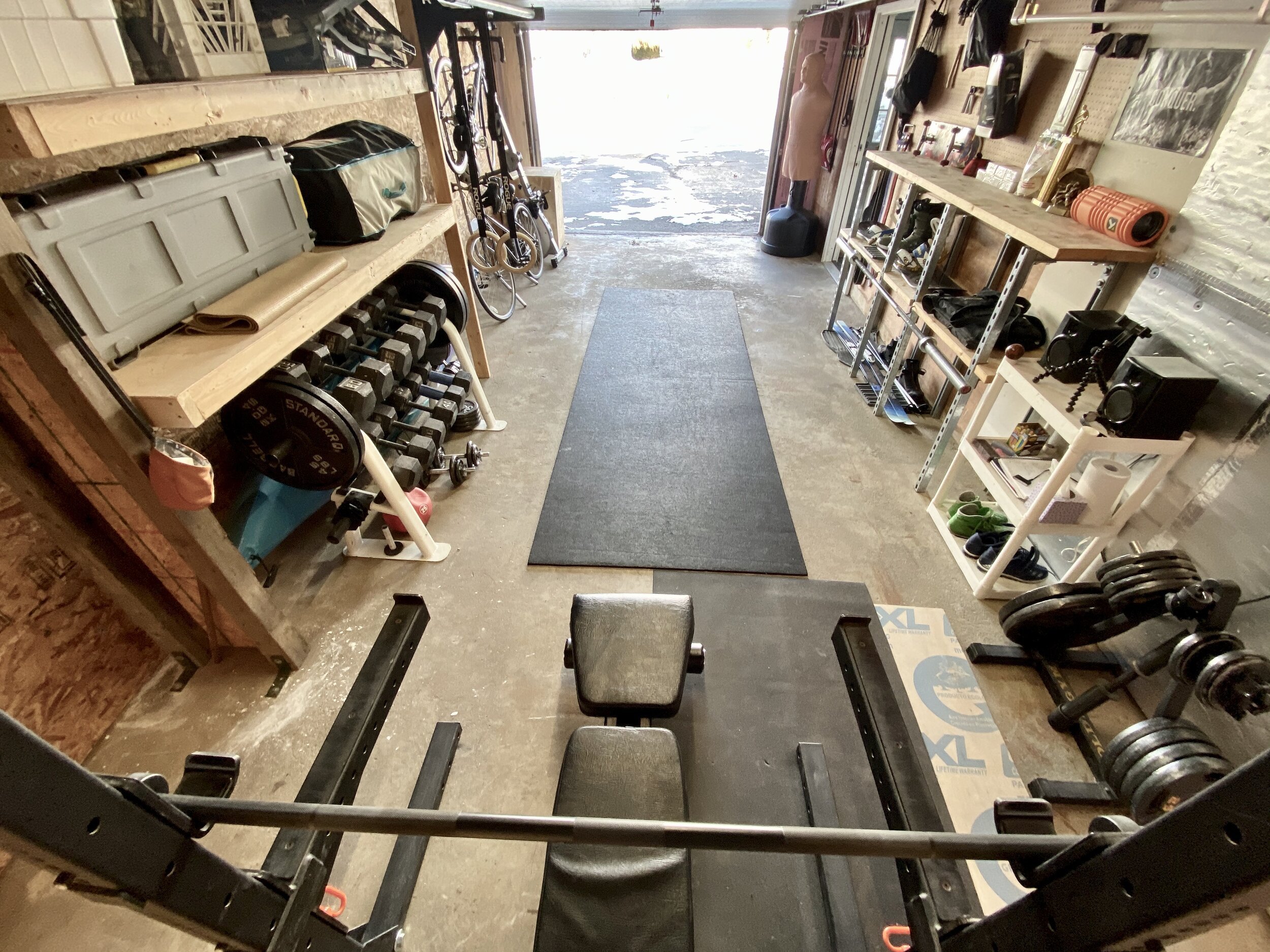
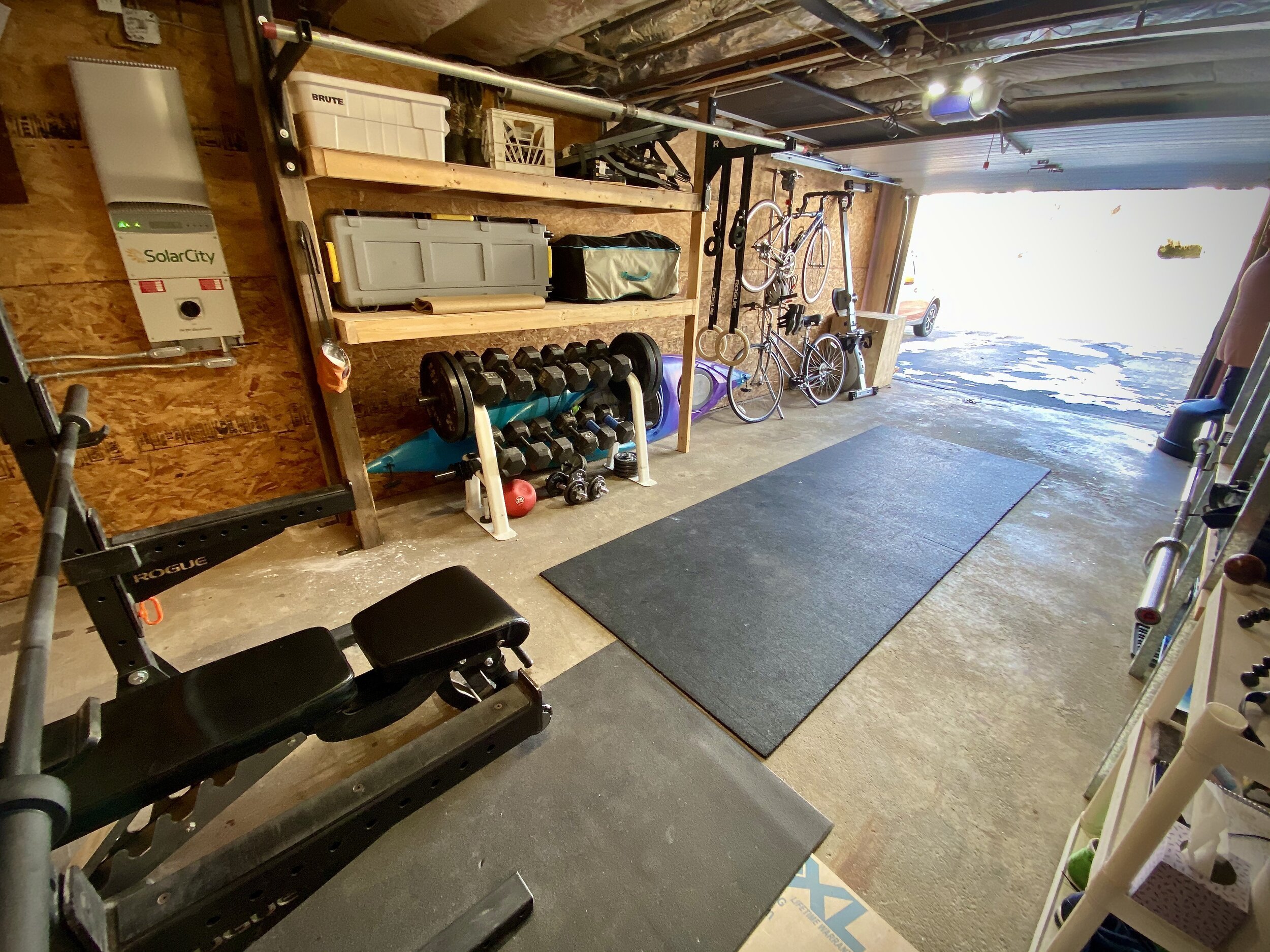
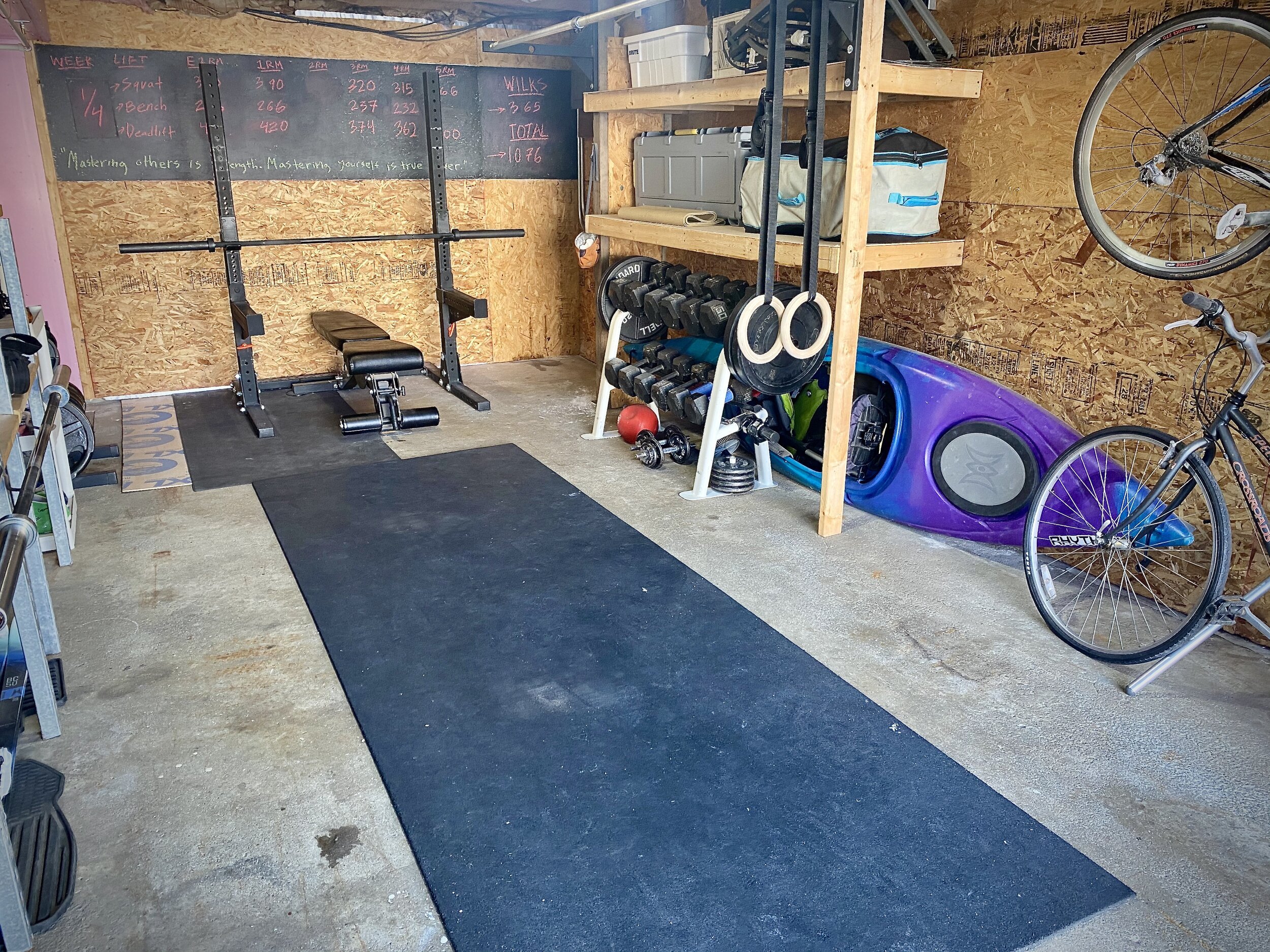
Saw healthy business growth.
This year, revenue grew by 67% and profit grew by 35%. I haven’t had this type of annual growth since I first started my business. While I’m proud of my hard work, I mostly feel fortunate to run an online coaching business while so many other industries have been hamstrung by the pandemic.
The other thing that helped me hit my growth goal this year was focusing on enrollment. First, I worked on improving my copywriting and sending regular emails that encouraged people to apply for a strategy session. Then, I worked with my assistant to improve our screening process so that I spent less time on those sessions with people who wouldn’t be a good fit. And finally, I continued to improve my conversion rate on calls and sell higher priced packages.
As a result I had fewer calls this year than last, but ended up making more money.
Learnings: The power of good copywriting to fill your calendar with consults, the importance of qualifying leads in a systematic way.
Worked with some superstar clients.
I don’t always work with clients 1-1 but when I do…they knock it out of the park.
Here are my three most recent case studies:
Learnings: I’m blessed to attract incredibly hard working coaches into my practice - they deserve all the credit in the world.
Took a semi-sabbatical during Q3.
I worked hard to scale up during the first 6 months of the year. This resulted in a communication breakdown with three of my group coaching clients. Long story short, I took the fallout personally and it spiraled me into a bit of a dark space.
As a way of getting perspective, I decided to take a “semi-sabbatical.” This meant continuing to work with a small handful of 1-1 clients, but not taking on new clients or projects July through September. I had built a large cash reserve in the first 6 months of the year and was able to do this without any financial stress.
For a recovering achievement-addict (I’m an Enneagram Type 3), creating this space was extremely uncomfortable at first. I resisted the tendency to create new goals inside and outside of my business. I worked with a therapist + coach to connect with my heart more. It was deep work that I’d been putting off and I’m so glad I did it.
Learnings: You are not what you accomplish. It’s okay to slow down. Honor the feedback you receive, use it to improve, but don’t let it determine your self-worth. Avoid burnout at all costs.
Paddled for 100 straight days.
A couple of months into COVID, Emma had an idea. What if we got out on a body of water every day for 100 straight days? We decided to do it - her in a kayak and me on a stand up paddle board. All that time outside did wonders for our mental health. It also helped us to explore Vermont.
Inspired by this podcast, we also kept track of all our paddles on a spreadsheet so that we could identify the GOAT Paddle (GOAT = Greatest Of All Time). We rated each paddle on the Go (how easy it was to get out on the water), the Show (the views and wildlife), and the Flow (how calm and peaceful it was). We went to over 50 unique spots (the rest were repeats) and put pins in a big map of the state which we have hanging in our home.
Learnings: Never underestimate the power of a good quest, especially one that gets you outside each day.
Strengthened my male friendships.
The isolation of this year actually gave me an opportunity to invest in my relationships more. I really enjoyed meeting in person and then virtually with my men’s book club throughout the year. One of the books we read together was The New Jim Crow by Michelle Alexander, which I would highly recommend.
I went mountain biking with old friends and snowboarding with new ones. I hope to get out on the slopes again soon this winter.
My men’s book club — Reading RainBros — went virtual once COVID hit. Love these guys.
One of my focuses from last year’s review was to become a more thoughtful friend, and I think that I accomplished that. In the past, I tried setting a weekly reminder for myself to check in with friends. But this always felt artificial and never really lasted.
This year, I focused instead on reaching out to people spontaneously when I thought of them or had some extra time on my hands. This organic approach worked much better. And friends returned the favor by checking in with me during hard times - like when we had to put our dog Scout down.
What Didn't Go Well Last Year?
Said goodbye to our boxer dog Scout.
Scout’s age and health issues really caught up with her in 2020. When her health and quality of life declined dramatically in December, it was clear that the time had come to let her go.
I’m grateful for Scout’s companionship over the years. She’s been there for us through multiple moves, getting married, and building businesses. I’ll miss her.
Learnings: Dogs are the best.
Bombed one of my course launches.
After working with a number of 1-1 clients in my side business, Enough Fitness, and then building a successful high end group offering, I decided to take the final step and turn my curriculum into a scaleable course. I had a lot of fun building out the launch, but thank god I didn’t reshoot all the training videos. I ended up enrolling 0 people into the course.
I have some ideas about why this might have happened. First off, I launched to an email list of about 900 people. While it’s possible to launch a course with this sized list, the majority of those people had come in through Facebook ads and were not highly engaged. Second, I used a new 3-video launch strategy called PLF that was new for me (instead of sticking with the webinar model that I’ve gotten to work before). And third, I glossed over what I realize now was a lack of engagement when I sent out an initial survey to my list pre-launch.
One of the pre-launch videos for the fitness course I (attempted) to launch this year.
It was a bit embarrassing and heartbreaking in the moment, but that’s part of being an entrepreneur. No one bats 1000. I dusted myself off and took it as a learning experience. And honestly, I view my fitness business more as a way to experiment than as a way to drive major revenue. Nothing inherently wrong with the fitness niche - it’s just difficult to scale two businesses at once and I’ve chosen to prioritize GregFaxon.com.
Learnings: Make sure you have enough engaged subscribers before launching, don’t test new launch strategies alongside new product offers if you can help it, listen to your gut during the validation process, don’t assume that a coaching offer you’ve sold via strategy session will automatically translate into a successful course launch.
Didn’t focus enough on growing my email list.
I added 2,788 subscribers to my email list in 2020. But that number is deceiving because I clean my list every 6 months by deleting people who have stopped opening emails. After both list cleans this year, I only grew my list by about 12%.
You can actually make good money from a small email list. My list is only 3,650 right now. What matters is that those people are looking for a specific solution, you know how to book consults, and you’re able to sell your coaching at high prices.
I clean my email list every 6 months to keep my open rates above 20%, which helps deliverability.
Because I want to focus more on selling courses in 2020, which will have a lower price point and a lower conversion rate, it’s going to be important to grow my audience. I’ll be creating more SEO-focused blog posts this year in order to get more visitors to my site. That’s always been my most effective form of lead generation.
Learnings: Double down on what works for you and invest in your long term growth.
What Am I Focused On This Year?
Accepting a foster child placement.
Emma has always wanted to foster and I only recently got on board with the idea. Before, I was more focused on my own personal and financial foundation. Now I’m able to give back by creating a safe and loving home for others. We were officially licensed a couple months ago and I’m excited to be a parent.
Fostering is going to be intense. We’ve already had a couple of placements fall through (meaning we were called about taking a child, said we would do it, and then the child ended up going to another home). It’s a bit of a bureaucratic nightmare even before you factor in actually parenting a child with trauma. Then there’s saying goodbye to that child if/when they are successfully reunified with their birth family (which is the ultimate goal). But I know Emma and I will use all of it as a way to grow.
Depending on when we accept a placement, this will likely impact my plans and priorities for the year. So I’m leaving some room for grace and flexibility.
Foster placements can happen quickly, sometimes in a matter of hours. We’ll be ready ✅
Shifting my revenue breakdown towards courses.
One of the things I love most about my business is teaching and creating courses. Historically, course sales have represented about 10-25% of revenue. The rest is mostly coaching. The problem with coaching, from a business model perspective, is that it can be hard to scale. You can create group programs. You can systematize things and hire other coaches. Still, it can’t compare to the scaleability of an online course.
My signature course right now is called Coaching Business Bootcamp. It’s self-study and is sold via on-demand webinar, so the income it provides is 100% passive. Students regularly report getting a 5-6x return on their investment. I’m in the process of updating that course now and will likely re-launch it in a couple of months. Once I’ve done that, I’m going to focus on driving more traffic to the site so that this can become a bigger chunk of my revenue for 2021.
Michel used their stimulus check to pay for Bootcamp and ended up making $6,900 during the course.
Giving at least 10% of my personal income to effective charities.
Last year, my wife and I gave 4% of our income to charity. Not bad, but not amazing.
In the past, I always had this sense that I should be giving more. But I lacked an overall philosophy for my giving. It felt random - a friend would do a charity run, or I’d learn about a local charity that seemed good and then look it up on Charity Navigator.
Then it hit me: I don’t invest randomly in my business, I invest in what’s most effective. There had to be more or less effective ways to give money away as well.
That’s when I heard about the effective altruism movement. Effective altruism is a research field that uses evidence and reasoning in order to identify how to do the most good. I highly recommend exploring this philosophy and, if it feels right, giving to an effective charity (GiveWell is a good place to start).
I’ve found that the best way to give consistently is to put your contributions on autopilot. Emma and I automatically allocate 10% of our monthly budget to giving, so I take my 5% and distribute it via reccuring payments to the charities I support. Currently I give through effectivealtruism.org - half of my money goes to the Global Health and Development Fund, and half goes to the Animal Welfare Fund.
What Is This Year's Theme?
My main intention going into 2020 was to focus on who I was becoming - my identity - more than on what I was doing. I think that was a good theme. I became a homeowner. A Vermonter. Someone who is capable of taking three months off work. Someone who is willing to fail and still show himself compassion. Someone who focuses more on others, prioritizes his friendships, and is ready to become a parent.
My commitment this year is to Slow Down and Listen. For those familiar with the Enneagram, I’m a Type 3. One of the things we struggle with is impatience. Deep down, 3s believe that love comes from accomplishment. This means I sometimes lose touch with my true feelings or fail to hear what others are trying to communicate to me.
I’ve experimented with different types of intention setting over the years but this simple commitment feels right for 2021. What’s your theme going to be this year?
In case you're curious, here my previous Annual Reviews:


